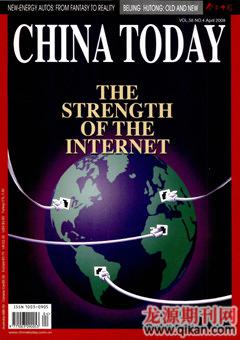Capping Sky-high Salaries
By CHENG XIAOBEI
US president Barack Obama was outraged that Wall Street firms paid out US $18.4 billion in bonuses to executives, despite receiving multi-billion dollar bailouts from the government to save the companies from collapse in the face of the worst financial crisis in decades. But China is facing a similar problem – many employees of financial firms are still receiving inflated salaries despite the current crisis.
Under the spotlight is one of Chinas largest securities brokerages, the Shanghai-based Guotai Junan Securities Co., Ltd. Though many companies have been reducing expenses through pay cuts and layoffs, Guotai decided to give its employees a hefty payrise for 2008, despite the A-share market slump. As much as RMB 3.2 billion in various forms of compensation and welfare expenses was doled out, an increase of 57 percent on Guotai Junans budget of RMB 2 billion at the beginning of 2008. If the pay packages had been fully implemented, the company, which employs 3,200 staff, would have recorded average annual payroll expenses of RMB 1 million per person. As a result, the argument about high salaries has spread from the US to China, where the financial business is in its relative infancy.
Staff at Guotai Junan claim they didnt actually receive such high payments however. The company has stated that the press mistook “plan” for “distributed,” meaning the company in reality didnt distribute such large sums. In addition, Guotai Junan insists, “Salaries per person in some securities companies are much higher than ours.”
But this “explanation” has not dispelled public disquiet. Most of those polled in an online survey said Guotai Junans move was disgraceful, especially since the firm was awarding high payrises when it hadnt even achieved its revenue target. As a matter of fact, the firms securities investment department incurred a RMB 144 million deficit in 2008. More importantly, Guotai Junan is not simply a private company. The Shanghai State-owned Assets Management Company and Central Huijin Investment Co, Ltd. hold one-quarter of Guotais shares. Thus Guotai Junans move has been described as a “carve-up” of state-owned assets.
It is not the first dispute over salaries in the financial sector. In 2007, Ma Mingzhe, president of China Ping An Insurance Corporation, caused controversy by becoming “Chinas most expensive boss,” receiving a pre-tax income of more than RMB 62 million that year. When Ping An Insurance Corporation made a gigantic loss in 2008, the press and netizens urged Ma Mingzhe to return his sky-high payment.
Statistics show the annual wage growth of top financial executives surpassed 200 percent in 2007, which was much higher than the growth of 20 percent in executive salaries in other listed companies. And a survey by the Chinese Academy of Social Sciences confirmed that the “wide income gap” is drawing great attention in China. Meanwhile, the public believes government officials and executives in state-owned and collective enterprises have benefited most from explosive economic growth in the last decade. There is no question people are concerned by high payments, but the underlying question is whether the figures are reasonable.
Under the current system in China, the relationship between profits in state-owned enterprises and executives abilities is rather vague. Frankly speaking, most profits are generated by guaranteed advantages held by state-owned companies, including preferential access to resources and fixed costs. It is therefore understandable that people often question the bosses high salaries.
President Obama put a cap of US $500,000 on Wall Street executives pay. The Chinese government has also drawn up rules and regulations regarding recompense for top executives. Once the regulations are approved, executive salaries will be restricted by the recipients position in the company, average salaries across the industry, and appraisal by the Ministry of Finance. An insider discloses the regulation will limit top financial executives basic annual salary to a maximum of RMB 700,000, while total payments should not be higher than four times the basic annual pay. In other words, a top executive in China may earn as much as RMB 2.8 million a year, which is just a little lower than his or her American counterparts.
Though the regulation is expected to be enacted within two months, it will not tackle the fundamental opacity of state-owned enterprises. Firms can still use various pretexts to distribute bonuses and subsidies on top of regular salaries. Thus, the public believes the precise impact of the legislation will be dependant upon its implementation.

